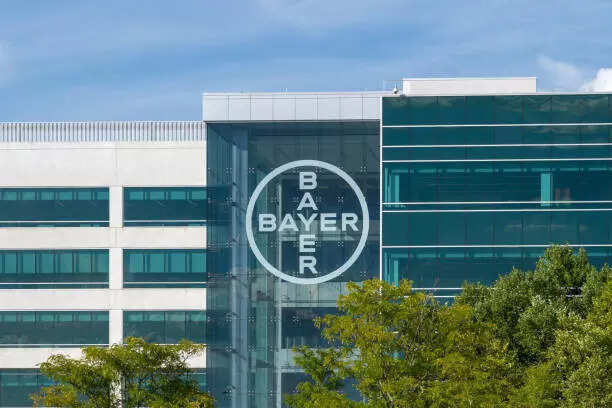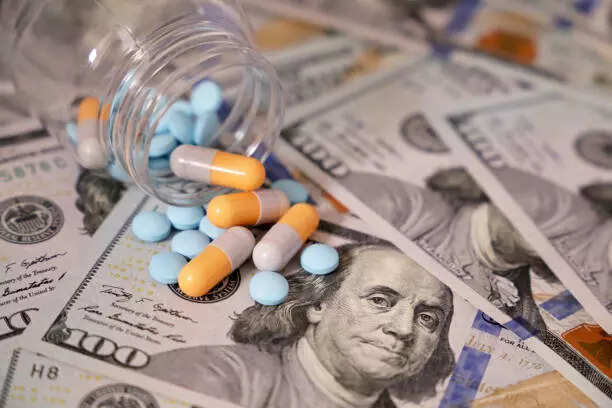预约演示
更新于:2025-12-09

European Federation of Pharmaceutical Industry Associations
更新于:2025-12-09
概览
关联
1
项与 European Federation of Pharmaceutical Industry Associations 相关的临床试验NCT00637767
A Randomised Phase II Clinical Trial Using Targeted Radiotherapy Delivered by an Yttrium-90 Radio-Labelled Anti-CD66 Monoclonal Antibody With High Dose Melphalan Compared to Melphalan Alone, Prior to Autologous Stem Cell Transplantation for Multiple Myeloma
RATIONALE: Drugs used in chemotherapy, such as melphalan, work in different ways to stop the growth of cancer cells, either by killing the cells or by stopping them from dividing. Radiolabeled monoclonal antibodies can find cancer cells and carry cancer-killing substances to them without harming normal cells. A stem cell transplant using stem cells from the patient may be able to replace blood-forming cells that were destroyed by the chemotherapy and radiolabeled monoclonal antibody.
PURPOSE: This randomized phase II trial is studying how well high-dose melphalan works when given with or without radiolabeled monoclonal antibody in treating patients with multiple myeloma undergoing an autologous stem cell transplant.
PURPOSE: This randomized phase II trial is studying how well high-dose melphalan works when given with or without radiolabeled monoclonal antibody in treating patients with multiple myeloma undergoing an autologous stem cell transplant.
开始日期2007-12-01 |
申办/合作机构 |
100 项与 European Federation of Pharmaceutical Industry Associations 相关的临床结果
登录后查看更多信息
0 项与 European Federation of Pharmaceutical Industry Associations 相关的专利(医药)
登录后查看更多信息
2
项与 European Federation of Pharmaceutical Industry Associations 相关的文献(医药)2022-07-01·Biologicals : journal of the International Association of Biological Standardization
Accelerating Global Deletion of the Abnormal Toxicity Test for vaccines and biologicals. Planning common next steps. A workshop Report
Article
作者: Suwarni, Eniek ; Mizukami, Takuo ; Goel, Sunil ; Lei, Dianliang ; van Ooij, Mark ; Poojary, Brinda ; Shirasaki, Yoshihisa ; Northeved, Helle ; Xie, Jianxun ; Subagio, Amrullah Aninditio ; Ottoni, Antoniana ; Seo, Borami ; Prakash, Jai ; Kubiak, Vaughn ; Jung, Kyung Jin ; Coppens, Emmanuelle ; Del Pace, Lorenzo ; Li, Xiantang ; Viviani, Laura ; Shaid, Shahjahan ; Reid, Kirsty ; Gastineau, Thierry ; Smith, Dean ; Wright, David ; Vandeputte, Joris ; Trapkova, Alla ; Zhou, Ying-Ying ; Sanyal, Gautam ; Gilbert, Philippe Alexandre ; Peng, Zhechu ; Milne, Catherine ; Levis, Robin ; Jungbäck, Carmen ; Suri, Rajinder ; Kirpitchenok, Tatiana ; Madhuri, Leena ; Das, Pradip
This online workshop Accelerating Global Deletion of the Abnormal Toxicity Test for vaccines and biologicals. Planning common next steps was organized on October 14th, 2021, by the Animal Free Safety Assessment Collaboration (AFSA), the Humane Society International (HSI), the European Federation of Pharmaceutical Industries and Associations (EFPIA), in collaboration with the International Alliance of Biological Standardization (IABS). The workshop saw a participation of over a hundred representatives from international organizations, pharmaceutical industries and associations, and regulatory authorities of 28 countries. Participants reported on country- and region-specific regulatory requirements and, where present, on the perspectives on the waiving and elimination of the Abnormal Toxicity Test. With AFSA, HSI, EFPIA and IABS representatives as facilitators, the participants also discussed specific country/global actions to further secure the deletion of ATT from all regulatory requirements worldwide.
1992-01-01·Vaccine3区 · 医学
European vaccine manufacturers: present status and future trends
3区 · 医学
Article
作者: Baudrihaye, N
The majority of the vaccines used in the world are supplied by companies grouped in the European Vaccine Manufacturers, a specialized group within the European Federation of Pharmaceutical Industries Associations. The vast supplies of vaccine to developing nations now represent too large a fraction of output, sold at low prices, that causes a drag on profitability. This situation needs to be addressed, to allow vaccine manufacturers to continue to provide quality vaccines at reasonable prices, and to foster research and development for improved and new vaccines.
21
项与 European Federation of Pharmaceutical Industry Associations 相关的新闻(医药)2025-12-03
iStock, Fokusiert
With new UK clinical trial rules landing in 2026, the EU Biotech Act on the horizon and China and Australia gaining ground, CROs are zeroing in on study timelines, AI/ML and data privacy as the industry’s next pressure points.
Pending and proposed changes to UK and EU clinical trial regulations, especially concerning trial timelines, are among the key focus areas for CROs in 2026, said Kathy Noonan, senior vice president of global regulatory policy at the Association of Clinical Research Organizations (ACRO), in an interview with
BioSpace
.
Other topics that have engaged members include AI/ML and data protection and privacy.
The Washington, DC-based ACRO has 15
members
, including global CROs such as ICON, IQVIA, Parexel and PPD, and technology and platform companies such as Medidata, Oracle and Zelta. In 2024, ACRO members employed more than 73,000 individuals across Europe.
Noonan said there has been increased recognition within life sciences of the need for Europe to bolster its clinical competitiveness versus the U.S., China and Australia. As
BioSpace
previously reported
, in-China trial volume has risen rapidly compared to the U.S. and Europe, positioning the country as a major global player in clinical development. Australia has also become an
attractive hub
for clinical studies, especially early stage trials.
UK/EU Regulations at the Forefront
ACRO’s European regulatory committee analyzes regulatory policy and legislation impacting the clinical research industry at the pan-European and national levels in Europe. It has engaged in industry consultations to press for faster trial timelines in Europe, Noonan noted.
A key CRO industry interest is the revised UK clinical trial regulations which take effect on April 28, 2026, and aim to strengthen participant safety and accelerate research. Key
changes
include legally requiring trial registration on a public register and the publication of results within 12 months, streamlining the application and approval processes with a single application route and harmonizing with international standards.
Noonan said there is also much member attention on the EU Biotech Act, a proposed legislative package from the
European Commission
intended to boost the European biotechnology sector. Its primary goals are to simplify regulations, accelerate product approvals and streamline processes to help biotech innovations move from the lab to the market more quickly. The act also aims to improve access to funding for biotech companies and enhance the workforce’s skills.
In terms of regulatory guidelines, ACRO members are also revamping processes to implement the ICH Guideline for Good Clinical Practice E6 (R3), published in January 2025. In terms of
key changes
from previous guidance, they “reflect advancements in trial design, technology and the digital ecosystem for trials, with expanded content on data governance and computeri[z]ed systems.”
AI/ML Remain Priorities
In addition, to faster trial timelines, ACRO members are invested in AI/ML growth, Noonan said. The organization has a committee that convenes member company subject matter experts engaged in the development and use of AI/ML tools in the design, conduct, oversight and analysis of clinical trials.
In April, ACRO submitted
comments
to the FDA on its
draft guidance
“Considerations for the Use of Artificial Intelligence to Support Regulatory Decision-Making for Drug and Biological Products.” Overall, the organization supported the guidance, as it found it “flexible, pragmatic and very risk-based” and provided industry with the confidence to develop these applications further, Noonan said. ACRO expects the European Medicines Agency to issue AI/ML- related guidance documents soon as well, with the hope the FDA document will be a good model.
ACRO plans to survey its members about how its members are using AI/ML internally, in terms of operational uses and how they are incorporating it into clinical trials.
U.S. lawmakers have a keen interest in incorporating AI into clinical research, with many conversations in the Senate, noted Fiona Lewis, ACRO’s advocacy associate. The aim is to drive U.S. leadership in the AI field, especially in terms of competition with China.
Another intersection with AI that ACRO members are increasingly interested in is sustainability, said Maddy Sever, the organization’s communications and member associate. “We’ve heard a lot about using AI and digital tools to create more sustainable trials, whether that’s decentralized trials or for internal operations,” she said. ACRO’s members are in turn seeing customers increasingly ask for sustainability metrics, she added. The organization created a sustainability committee this year to focused on advancing sustainable practices in clinical research.
Eye on Data Protection and Privacy
Data protection and privacy issues directly impact ACRO members, Noonan said. As CROs handle sensitive data across increasingly global trial sites, cross-border data security is a
concern.
Pharmaceutical companies must share proprietary knowledge, patient information and intellectual property with their CRO partners when outsourcing highly sensitive research tasks. However, the methods used to transfer this information introduce security vulnerabilities that may result in data leaks, unauthorized access to protected assets or accidental exposure of private details, according to a Business Research Insights
report
. Another caveat is that data protection regulations vary widely among countries.
The topic is relevant as according to internal research, 50% of clinical trials have data capture issues, said Ali Pashazadeh, founder of TreeHill Partners.
An internal ACRO committee comprised of member company data protection and privacy professionals considers relevant legislation and regulation globally, including hot topics such as data localization and transfer, Noonan said. In addition, the committee engages with professional colleagues such as European Federation of Pharmaceutical Industries and Associations and the International Pharmaceutical and Medical Device Privacy Consortium, Noonan added.
临床研究
2025-10-24
German pharmaceutical giant
Bayer
plans to adopt a strong tiered pricing approach worldwide to make its drugs and therapies affordable. However,
Stefan Oelrich
, head of Bayer's pharmaceuticals division, in an interview with Vikas Dandekar and Teena Thacker underlined the need for returns on its investments for the risks it takes for
research
. Edited excerpts:
How has the
Trump
administration's tariff decisions on imports of medicines impacted Bayer's business?
I am in favour of rule-based trade around the world. Free trade has been the basis for an incredible creation of wealth for the entire world, independent of regions. On pharmaceuticals, an (US) investigation is ongoing when it comes to trade, and we'll have to see what the outcome is. There have been some trade deals between the EU and the US, given that we have a lot of reciprocal trade. That at least gives us some planning certainty, but the rest must be seen. It's a little bit in flux.
Obesity management has been in the news on the pharma front. Where is Bayer placed?
Traditionally, we have been strong in cardiovascular and metabolic areas, so all of these are connected. We don't have a specific obesity pipeline project today, but that doesn't mean we're not interested in the overall connection of what's happening in terms of your immune system. In fact, obesity is ultimately an inflammatory process. We target other inflammatory processes, for example protecting the kidney, the heart, and all of this come together. So, reducing weight is one important factor, but not the only one. We are happy where we are. And in R&D, it's like a good sports game: you don't want all the kids on one ball; but you want them distributed along the field to score the most goals.
China has become a big
innovation
hub with a rush of deals with large companies. How do you see the axis of innovation shifting from the west? How does Bayer prepare for it?
Take our presence in India: more than 120 years, making us probably one of the oldest brands in the country. This holds true in many regions of the world. Investment into innovation goes where there's a good reception for it, and also some level of acceptance of returns on those innovations.
Europe
was traditionally the "pharmacy of the world." Then it shifted more to the US. Today we have more balance across regions, which now includes China.
You're head the
European Federation of Pharmaceutical Industries and Associations
(EFPIA), and you've spoken about the need for a reset because of pressures from the US and China. What's your road map to get European research back in shape?
I would like to characterise it with three As: We need to accelerate, attract, and access. These words essentially sum up my agenda in this presidency. Europe needs to be attractive for investment, both in capital and in terms of people. Europe needs to be faster in approvals, faster in reducing bureaucracy and faster in creating better regulation. We need to accelerate and ultimately, it must ensure strong access to all citizens. One of the most important tasks that we have as innovators is that innovation translates into demand. These three together should make Europe competitive with any region in the world.
You have said breakthroughs require courage, ambition, and crucially, the right environment. What's your prescription for that?
I think time has never been better for breakthroughs than today in our industry. The increase in knowledge around biology, combined with digital advancements and chemistry, has never been better. Knowledge growth in our sector is almost second to none. In IT, we always talk about Moore's law in chips, something similar applies to biopharmaceutical sciences. So, that incredible push in knowledge growth translates ultimately into the opportunity to create products that make life better and longer, and ultimately also make this industry very attractive to invest.To get there, you need to be courageous. Because to get breakthroughs you need to take risks, because you never know if that knowledge ultimately translates into a successful medicine. You need to get off the beaten path and take the innovation to the next level.
We have seen a wave of new, more agile companies that are able to invent new drugs, and they have toppled the old order. On the other hand, centuries-old companies have felt pressure and cost burdens are increasing. In all of this, do you think large companies can come back with the same efficiency and agility?
I love that question because it brings me to the third priority for us this year, leveraging our operational system. It started as we were revamping our R&D model to become less German-centric than we had been. We did acquisitions in the US and Europe. Three of them were in US. As we acquired these biotech companies, one of the organisational principles that we applied was to manage them as if they were continuing as biotech firms. We created what we call the arm's length principle. Their boards stayed in place, I am the chairman of the boards of these three companies; we operate them as independent biotech units that buy services from us instead of building them internally. They remain independent in how they operate, how they pay people, and how IT systems work.
By
Vikas Dandekar
&
Teena Thacker
,

并购
2025-10-03
India’s pharmaceutical industry, often called the world’s pharmacy, is standing tall despite some
trade turbulence
brewing across the Pacific.
The U.S. has been mulling a hefty 100% tariff on branded and patented drugs, a move that’s got everyone from Mumbai boardrooms to Washington policymakers buzzing. But with India’s massive drug exports worth around $10billion a year to the U.S. alone—built mostly on affordable generics, the sector’s looking more resilient than rattled.
What’s the Deal with These Tariffs?
Here’s the scoop: back on September 25, 2025, President Donald Trump took to Truth Social to announce that starting October 1, a 100% tariff would hit any branded or patented drugs coming into the U.S. unless the companies behind them start building factories on American soil. It’s a bold play to boost U.S. manufacturing, ease reliance on foreign supply chains, and tackle sky-high drug prices.
But as of October 2, 2025, the plan’s on pause. The White House says it’s still hashing out details, talking with drugmakers about pricing and supply chain tweaks. There’s even talk of sweeteners, like a three-year tariff break for companies like Pfizer if they invest in U.S. plants. Oh, and the best part?
Generic drugs
—the backbone of India’s exports—are off the hook.
No official word has dropped on the U.S. Trade Representative or White House websites yet, so it feels like the government’s still kicking the tires on this one. Some folks in the know think the announcement was more about flexing negotiation muscle than locking in a final policy. Over in India, the Commerce Ministry’s doing its homework but seems pretty chill, figuring the impact will be small since generics make up over 90% of what India ships to the U.S.
As
Sudarshan Jain
from the Indian Pharmaceutical Alliance put it, this exemption protects the low-cost model that’s been a game-changer for American patients, saving their healthcare system billions—$219 billion from generics alone in 2022, to be exact.
Indian Drugmakers in the Mix
Even with the tariff delay, companies dabbling in branded or specialty drugs aren’t totally in the clear. Those working on fancier stuff—like complex generics or biosimilars—might feel a pinch if the rules get murky. Here’s who’s on the radar:
•
Dr. Reddy’s Laboratories
: They’ve got a big U.S. presence with a lineup of specialty and branded generics, making them one to watch if tariffs tighten up.
•
Sun Pharmaceutical Industries
: They’re big in skin and cancer treatments, with some patented products in the mix. Their generics empire keeps them grounded, though.
•
Cipla
: They’re making waves in U.S. markets with lung and HIV specialties. A hit on their branded stuff could sting, but their diverse portfolio helps.
•
Lupin
: Known for brain, nerve, and heart meds, they’ve got some specialty products that might draw attention if tariffs expand.
•
Aurobindo Pharma
: They’re deep in the U.S. game with branded injectables, but generics are their bread and butter, so they’re likely safe.
•
Others to Watch
: Zydus Lifesciences, Alembic Pharma, and
Wockhardt
stick mostly to generics but have a few specialty side gigs worth keeping an eye on.
The good news? Many of these companies already have a foot in the U.S. door through partnerships or buyouts, which could soften any blows. India’s knack for churning out cheap, high-quality generics supplying nearly half of America’s needs, makes it a tough player to sideline. Plus, government programs like the Production Linked Incentive scheme are pouring money into research for biologics and complex drugs, turning potential hurdles into chances to innovate.
Why It Matters Beyond the Business
This isn’t just about trade deals—it’s about people. The U.S. brings in $212 billion in drugs every year, and higher prices on branded meds could hit patients’ wallets hard. Groups like the European Federation of Pharmaceutical Industries and Associations are already sounding alarms about supply chain hiccups or delayed treatments. For India, this could be a nudge to spread its wings to markets like Europe, Africa, or Southeast Asia, while pushing for clearer global trade rules on what “branded” even means.
With talks still simmering, October 1 felt less like a deadline and more like the start of a longer conversation. Keep an eye on U.S. Trade Representative updates for any news on exemptions or next steps. For now, India’s
pharma giants
rooted in generics and quick on their feet look ready to ride out this uncertainty and keep delivering medicines that millions rely on worldwide.
The article is written by Chakravarthi AVPS, Sr Vice President (National) & Chairman, AP and Telangana.,
Federation of Pharma Entrepreneurs (FOPE)
and Global Ambassador,
World Packaging Organisation
.
(DISCLAIMER: The views expressed are solely of the author and ET Pharma.com does not necessarily subscribe to it. ET Pharma.com shall not be responsible for any damage caused to any person/organisation directly or indirectly)
By
Chakravarthi AVPS
,

100 项与 European Federation of Pharmaceutical Industry Associations 相关的药物交易
登录后查看更多信息
100 项与 European Federation of Pharmaceutical Industry Associations 相关的转化医学
登录后查看更多信息
组织架构
使用我们的机构树数据加速您的研究。
登录
或

管线布局
2026年02月08日管线快照
无数据报导
登录后保持更新
药物交易
使用我们的药物交易数据加速您的研究。
登录
或

转化医学
使用我们的转化医学数据加速您的研究。
登录
或

营收
使用 Synapse 探索超过 36 万个组织的财务状况。
登录
或

科研基金(NIH)
访问超过 200 万项资助和基金信息,以提升您的研究之旅。
登录
或

投资
深入了解从初创企业到成熟企业的最新公司投资动态。
登录
或

融资
发掘融资趋势以验证和推进您的投资机会。
登录
或

生物医药百科问答
全新生物医药AI Agent 覆盖科研全链路,让突破性发现快人一步
立即开始免费试用!
智慧芽新药情报库是智慧芽专为生命科学人士构建的基于AI的创新药情报平台,助您全方位提升您的研发与决策效率。
立即开始数据试用!
智慧芽新药库数据也通过智慧芽数据服务平台,以API或者数据包形式对外开放,助您更加充分利用智慧芽新药情报信息。
生物序列数据库
生物药研发创新
免费使用
化学结构数据库
小分子化药研发创新
免费使用
